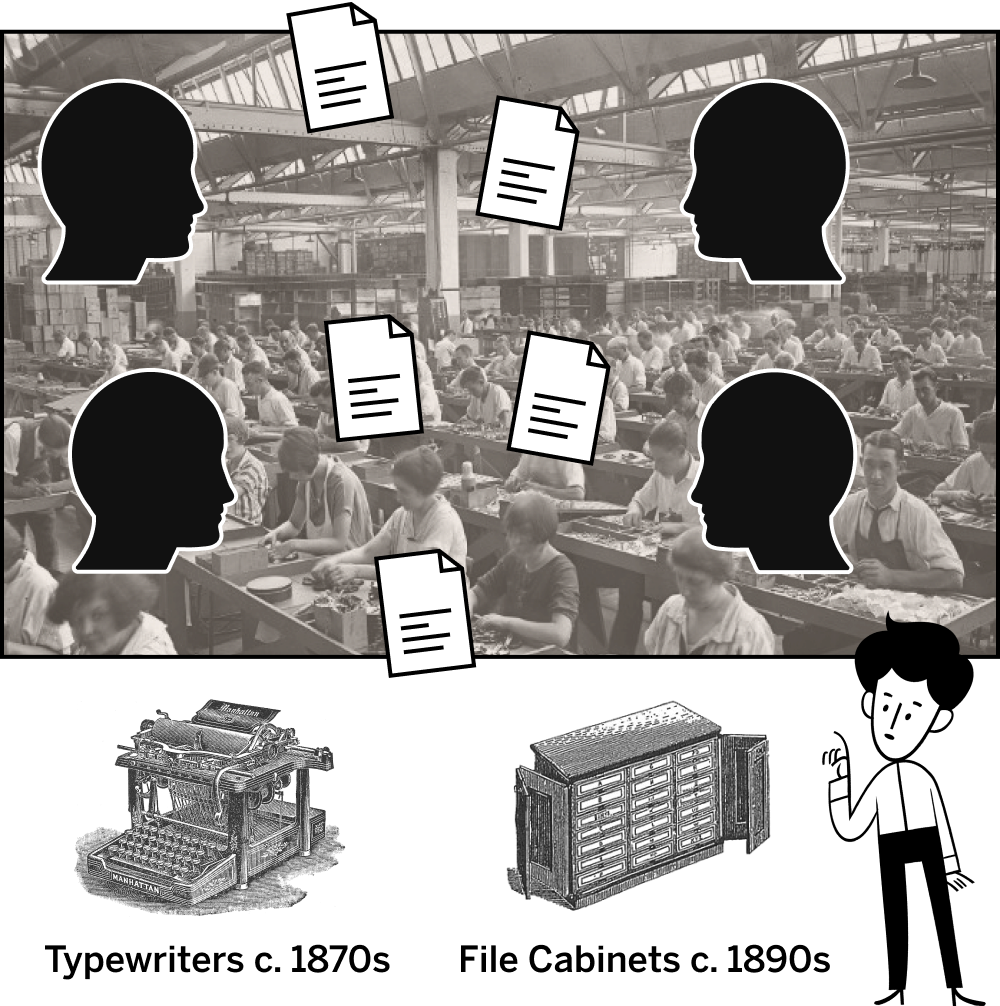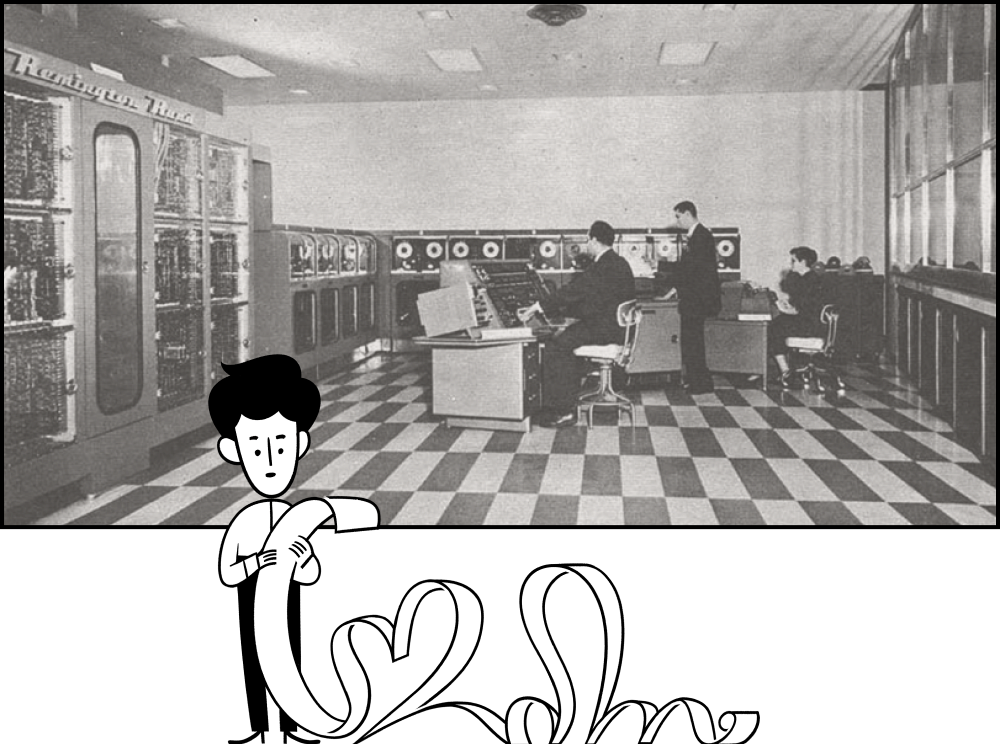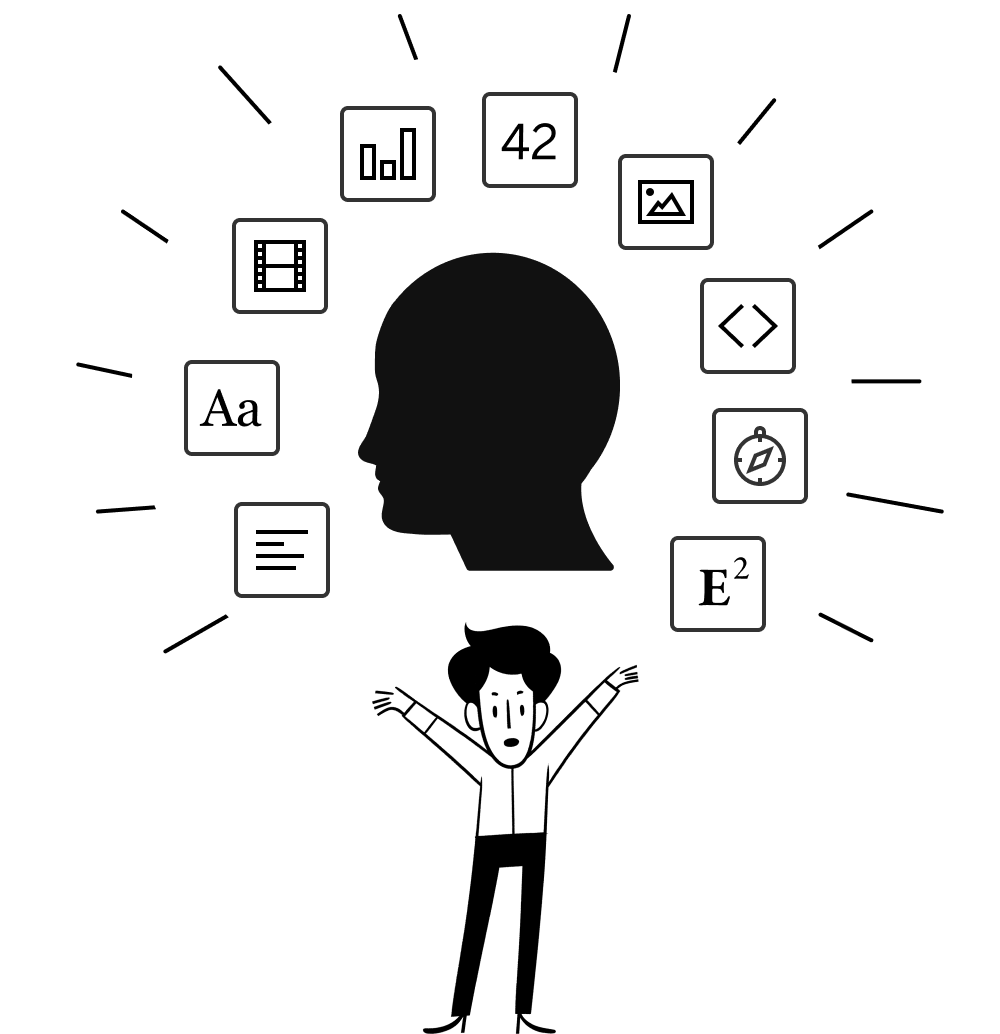
收集整理 袁志伟 @fonter 2019.04
"We shape our tools, thereafter our tools shape us."
– Marshall McLuhan

对 Notion 的定义,据我观察应该经历过3个阶段,但是3个阶段最核心的愿景还是没变的,他们想做一个 tools for thought(这个是也是 Ivan Zhao 的 instagram 的签名);
由 tool → toolbox,有点“授人以鱼不如授人以渔“的哲思。



Hi there! If you're reading this, you're probably like me—spending most of your days in your office, in front of a computer.
大家好!如果你正在阅读这篇文章,你可能和我一样,大部分时间都是在办公室里,在电脑前度过。

You probably have fifteen tabs open: one for email, one for Slack, one for Google Docs, and on, and on… But have you ever thought about where these "work tools" came from? Or why there are so many of them? To answer these questions, and to explain why we created Notion, we have to travel back in time.
你可能有15个标签页打开了:一个是电子邮件,一个是Slack,一个是Google Docs,还有一个是Google Docs,等等。 但你有没有想过,这些 "工作工具 "从何而来?或者说,为什么会有这么多的 "工作工具"? 为了回答这些问题,也为了解释我们为什么要创造Notion,我们必须要回到过去。

As people flooded to factories during the Industrial Revolution, many tools were invented to ease the management overload.Typewriters replaced illegible handwriting. File cabinets stored more information than any clerk could remember (and also won the gold medal at the 1893 Chicago World's Fair!)Tools like these paved the way for offices as we know them today.
随着工业革命期间人们涌入工厂,许多工具被发明出来,以减轻管理上的负担。文件柜储存的信息比任何文员都要多(还在1893年芝加哥世界博览会上获得了金奖!)。

Fast forward to the 1950s, when computers came into the workplace.At first, they were lifeless, room-sized monsters that operated on paper and punch cards. They were used solely for number-crunching.
快进到20世纪50年代,当电脑进入工作场所时,起初,它们是没有生命力的、房间大小的怪物,靠纸和打孔卡操作。它们只用于数字计算。

Then something magical happened in the 1970s!
A generation of pioneers saw the computer as something far beyond a number-crunching machine. They dreamt a future where computers could amplify imagination (Alan Kay), augment intellect (Doug Engelbart), and expand our thoughts far beyond text on paper (Ted Nelson).A tool unlike anything we have seen before.
20世纪70年代,神奇的事情发生了!
一代先驱者将计算机视为远超数字运算机器的东西。他们梦想着一个未来,电脑可以放大想象力(Alan Kay),增强智力(Doug Engelbart),扩展我们的思想,远远超过纸上的文字(Ted Nelson)。